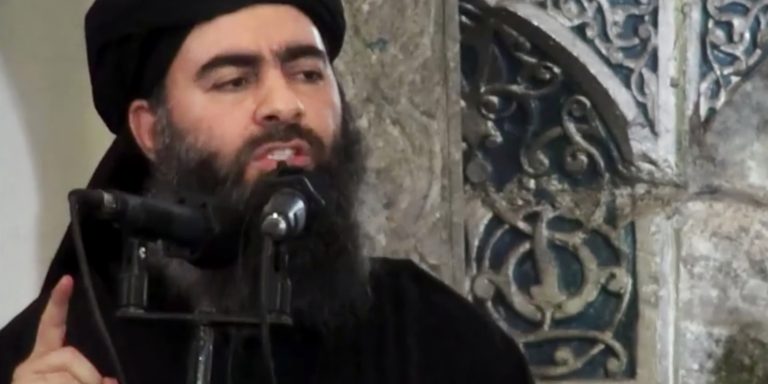INTELBRIEF
October 28, 2019
IntelBrief: Baghdadi May be Dead, but the So-Called Islamic State Will Live On

- On October 26, Abu Bakr al-Baghdadi was killed in a raid by U.S. forces in northern Syria near the Turkish border.
- The October 27th announcement by President Trump marks another shift for a group that has persisted as a ‘brand’ and global insurgency for years.
- Killing Baghdadi is essential, as he was a symbol and still maintained operational contact with franchise and affiliate groups throughout the globe.
- Even after Baghdadi’s death, the Islamic State will persist as a global ‘brand’ and as an enduring insurgency, as well as a transnational terror franchise.
.
A United States military operation has reportedly killed Abu Bakr al-Baghdadi, the leader of the so-called Islamic State, in a raid conducted on October 26, 2019. United States President Donald Trump made the announcement during an early morning press conference from the White House on October 27. Declaring that Baghdadi 'died like a dog…he died like a coward,' President Trump described how the Islamic State leader detonated a suicide vest after being cornered by United States Special Forces personnel in the town of Barisha, Syria. The town where Baghdadi was eventually hunted down and killed in was located in Idlib Province, along the border with Turkey, where both myriad terrorist groups, including Hayat Tahrir al-Sham and the al-Qaeda-linked Hurras al-Din are holed up, attempting to survive the onslaught from Assad regime troops and Russian airpower.
The death of al-Baghdadi is a significant achievement, as he was the leader of a terrorist group that committed mass atrocities and crimes against humanity, including rape and murder. As the leader of the Islamic State, he also inspired and directed attacks across the globe. In the summer of 2014, at the height of the group’s territorial reach, al-Baghdadi assumed the role of caliph, or the religious leader of a restored caliphate based in Iraq and Syria. It was this drive to proclaim a caliphate that, among many other issues, created a schism and then endless animosity between the Islamic State and al-Qaeda, as the former labeled the latter as takfiris, or apostates. The two groups adhered to unique ideological positions, but al-Qaeda strongly believed that it was premature for any group to proclaim, build, and support a caliphate, instead believing in a more grassroots approach. Baghdadi and his many followers and supporters believed otherwise, and succeeded in the short term in building a proto-state in the heart of the Levant. Countless lives and communities were destroyed in the process.
It should not be altogether surprising that Baghdadi would be hiding out in Idlib Province, which is overcrowded with several million internally-displaced Syrians who over the last several years have fled from the advances of the Assad regime. Idlib is the last remaining rebel-held province. While the vast majority of people trapped in Idlib have nothing to do with extremism, there is a significant jihadist presence there which Baghdadi might have believed provided cover and concealment for him to blend in. Killing Baghdadi is essential, as he was both a symbol for inspirational attacks and support across the globe and still maintained operational contact with franchise and affiliate groups throughout the world.
Still, it is important to recognize this for what it is, a tactical success. Decapitation strikes, the killing of a group’s leader, rarely translate to a death knell for these groups, which are often able to survive targeted assassinations against leadership figures. Even after the death of Baghdadi, the group will persist both as a global 'brand' and as an enduring insurgency in Iraq and Syria, not to mention a transnational terror franchise with a network that stretches to Afghanistan, Libya, Egypt, Yemen, West Africa, Southeast Asia, and beyond. The world is a better place with Baghdadi gone, but it remains a dangerous one with the ideology and the abysmal conditions deep-rooted in places like Iraq and Syria that provide sustenance to the warped worldview, structural factors, and environmental conditions that allowed the Islamic State to rise in the first place.
.
For tailored research and analysis, please contact: info@thesoufancenter.org